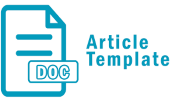Implementation of Economy Civics Through Citizen Participation in Urban Farming Program
Abstract
Keywords
Full Text:
PDFReferences
tuweb) melalui microsoft teams mahasiswa pgsd universitas terbuka di era pandemi. Dwija Cendekia: Jurnal Riset Pedagogik, 5(1), 1–11.
Seputro, A. (2019). Manajemen strategi dalam pemberdayaan ekonomi bagi masyarakat menengah kebawah dalam rangka menangkal paham radikalisme dan terorisme di era revolusi industri 4.0. Jurnal Ekbis, 20(2), 1261-1272.
Situmeang, I. V. O. (2015). program corporate social responsibility pt pertamina refinery unit vi balongan dalam meningkatkan keberdayaan masyarakat (kasus pada Desa Balongan, Majakerta, Sukaurip dan Karangsong). Sociae Polites, 16(1), 53-74.
Sofia, I. P. (2017). Konstruksi model kewirausahaan sosial (social entrepreneurship) sebagai gagasan inovasi sosial bagi pembangunan perekonomian. Widyakala Journal: Journal of Pembangunan Jaya University, 2(1), 2-23.
Subandi. (2011). Deskripsi kualitatif sebagai satu metode dalam penelitian pertunjukan. Harmonia Journal of Arts Research and Education, 11(2), 173–179.
Thompson, J. (2011). Building the civic economy. RSA Journal, 157(5546), 32–33.
Wardhani, P. S. N. (2018). Partisipasi politik pemilih pemula dalam pemilihan umum. JUPIIS: Jurnal Pendidikan Ilmu-Ilmu Sosial, 10(1), 57-62.
Xiaodong, L., Xiaoping, L., and Feng, F. (2019). Retracted: Research on citizen participation in the implementation of public policy in big data age. IOP Publishing Journal of Physics: Conference Series, 1168(3), 1–6.
Zulkifli, dan Bestari, P. (2020). Penguatan economic civic dalam membentuk kemandirian santri sebagai wujud good governance. Citizen Voice: Jurnal Pendidikan Pancasila dan Kewarganegaraan, 1(1), 11–28.
DOI: https://doi.org/10.17509/civicus.v22i1.47681
Refbacks
- There are currently no refbacks.
Copyright (c) 2022 Fajar Sidiq Muttaqin, Endang Danial, Prayoga Bestari

This work is licensed under a Creative Commons Attribution-NonCommercial-ShareAlike 4.0 International License.
Our journal indexed by :
Jurnal Civicus is published Univesitas Pendidikan Indonesia in collaboration with Indonesia Association Profession of Pancasila and Civic Education/Asosiasi Profesi Pendidikan Pancasila dan Kewarganegaraan (AP3KnI).

Jurnal Civicus is licensed under a Creative Commons Attribution-NonCommercial-ShareAlike 4.0 International License.





__.png)










